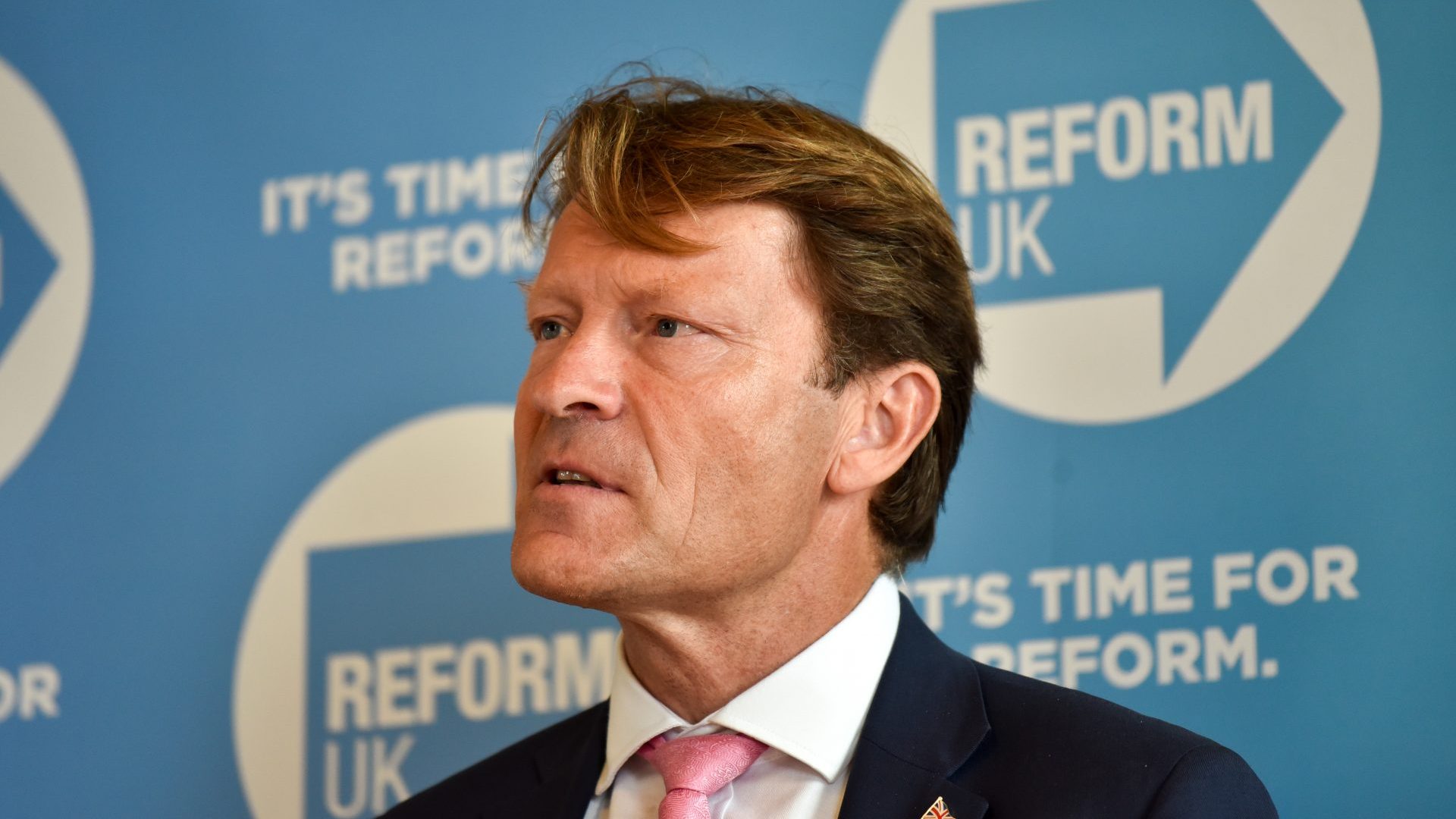Richard Tice is on a mission. The leader of the Reform Party – effectively a renamed Brexit Party – is embarking on a quest to squash the Conservatives in such a manner that they “never have a majority government again”. Or, at least, he’s announced he is.
At a press conference in London, the multi-millionaire property developer said Britain had been “broken” by 12 years of Tory rule and he believed his party holds the “brave and bold” solutions. So, how to achieve this?
First, things first, win some seats in parliament. Despite occasional rumours of defections from extreme Tory Brexiteers, the party’s sitting MP count currently resides at zero. Tice aims to change this by fielding Reform candidates in every constituency in England, Scotland and Wales at the next election, which must take place by January 2025.
Tice is ruling out any deal with the Tories, claiming his scars are still raw from the Brexit Party’s decision not to run candidates against Boris Johnson’s ‘Get Brexit Done’ Conservatives in the 2019 election. Johnson won in a landslide and suddenly Tice and Nigel Farage lost the leverage they had enjoyed in the chaotic days of Theresa May. It has taken them until now – aided by the removals of Johnson and born-again Brexiteer Liz Truss – to creep back up in the polls.
These are Tice’s scars. But happily, if Reform were in government, those scars would have been seen to and healed by a newly saved-from-crisis NHS.
The party pledges to cut NHS wait times to zero within its first two years through greater use of private healthcare at the cost of a cool £30bn, proving a somewhat questionable hot new take on levelling up. Reform’s other policies include lifting the starting rate of income tax to £20,000, to be paid for by cutting government waste and, unsurprisingly, a crackdown on legal and illegal immigration.
They claim this can all be paid for by stopping the Bank of England paying interest to commercial banks on reserves from its Quantitative Easing programme, as well as other fiscal moves.
Reform is currently polling at 7%, a figure that puts them neck-and-neck with the Greens and the Liberal Democrats and four percentage points above where they sat just three months ago. Tice may believe they are “the party with momentum” (the quantity of motion, rather than the left-wing political group), but this is still no mean feat with David and Goliath style task in front of him – if David were less heroic and had more appropriate use of metaphors. Perhaps Tice knows something we don’t, which is itself a scary thought.
The problem for Tice and his semi-detached political partner Farage is that even at 7%, they are unlikely to win seats – for one thing, long-time Conservative voters currently tempted by Reform are likely to return to the Tories at general election time in order to stop Labour or prevent a Starmer landslide; for another, there are no longer any Conservative seats held by so-called ‘Brexit traitors’ to target from the right (unless they want to target Rishi Sunak himself, who has a 27,210 majority in Richmond and is, after all, a Brexiteer).
They need two things to be influential: 10+ seats at Westminster and, far more important, a hung parliament (which may lead to PR, and even more influence for smaller parties). A strategy that seeks to take votes from the party currently 20-plus percentage points behind in the polls, ensuring them a heavy defeat and a substantial Labour majority, seems unlikely to achieve either of those aims.











